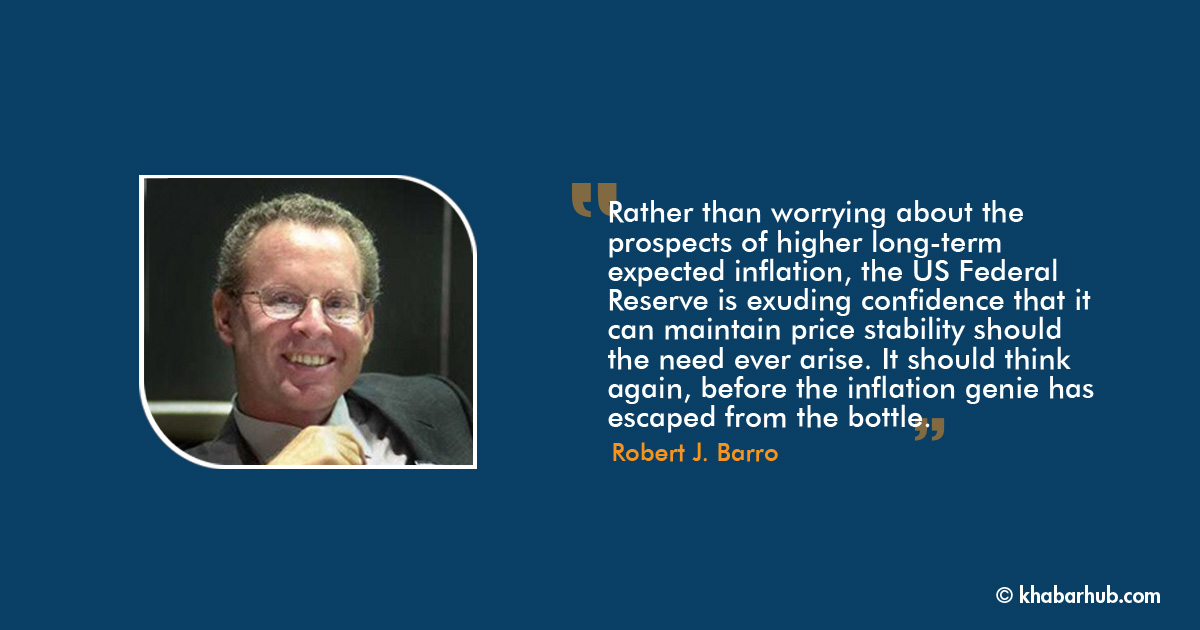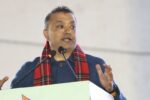Five decades ago, the United States’ biggest macroeconomic problem was high inflation, which averaged more than 6% in the 1970s and rose to as high as 10% by the end of the decade.
Then came US Federal Reserve Chair Paul Volcker, who was appointed by President Jimmy Carter in 1979 and reappointed in 1983 by President Ronald Reagan.
In 1981, Volcker famously broke the back of inflation through a policy of high interest rates. By sticking to this policy despite a recession, he convinced financial markets, businesses, and households that the Fed would henceforth do whatever was necessary to ensure low and stable inflation.
Many years later, this strong commitment by a top monetary policymaker may have served as the model for Mario Draghi, when, as European Central Bank president in 2012, he committed to “do whatever it takes” to preserve the euro. No doubt, Draghi’s success in that mission explains why he just became Italy’s prime minister.
The key to Volcker’s legacy is the anchoring of long-term inflation expectations at a low value, around 2% per year since the 1990s. This anchor translated into actual price stability, with inflation remaining at a low average rate of about 2%.
The problem is that hiking short-term rates will have little impact on inflation once high long-term expected inflation has taken root.
Having established confidence about long-term expected inflation, the Fed soon found that it had a lot of short-term policy leeway: it could adjust short-term nominal interest rates and quantities of monetary aggregates without jeopardizing its long-run credibility.
For example, it kept short-term nominal rates close to zero for extended periods and dramatically expanded its balance sheet, all while maintaining the key anchor of low long-term expected inflation.
Unfortunately, this reputational capital that Volcker bequeathed is now being threatened by reckless monetary and fiscal policies. The Fed’s balance sheet nowadays seems to observe no limits, and fiscal deficits as a share of GDP are running at unprecedented peacetime levels.
The Fed now exudes confidence – or rather, overconfidence – that nothing it does will affect long-term inflation expectations.
Indeed, if anything, it wants inflation to rise from around 1.5% per year toward its target of near 2%. But rather than wringing its hands over below-target inflation today, the Fed should be worrying more about the potential for a sharp rise in long-term expected inflation.
Consider the current US inflation figures. Before the COVID-19 recession, from early 2010 to early 2020, the inflation rate for the consumer price index (CPI) averaged 1.7% per year, and the average rate calculated for the Fed’s favorite price-level measure – the deflator for personal consumer expenditure – was similar, at 1.5% per year.
A reasonable measure of long-term expected inflation is the ten-year break-even inflation rate, which equals the difference in yield between conventional and inflation-indexed ten-year US Treasuries.
In January-February 2020, this rate equaled 1.7% per year, so that long-term expected inflation coincided with recent actual inflation.
Then, the severe recession that started in March 2020 generated a short-term fall in the price level, leaving inflation temporarily in negative territory (‑4% per year from March to May). At the same time, long-term expected inflation fell to around 1% per year.
But the inflation rate soon ticked up – averaging 3% per year from May 2020 to January 2021 – and long-term expected inflation increased substantially from 1% per year in March-May 2020 to 2.2% by February 2021.
This change reflected partly an increase in the conventional Treasury yield, from 0.7% to 1.2%, and partly a decrease in the indexed-bond yield, from -0.3% to -1%.
The upshot, according to the financial markets, is that the higher inflation experienced since last May will not be temporary. Bond yields are signaling long-term inflation above 2% per year. On the bright side, this is still well below the 6% of the 1970s.
Financial markets, businesses, and households would have to believe that the Fed, in cooperation with the Treasury, would maintain high interest rates as needed even in the face of recession.
Again, the Fed, particularly Chair Jerome Powell, seems highly confident that it can keep a lid on inflation by eventually raising short-term nominal interest rates if necessary.
The problem is that hiking short-term rates will have little impact on inflation once high long-term expected inflation has taken root.
The only way to keep the genie in the bottle is with the “whatever-it-takes” philosophy that Volcker pioneered in the early 1980s.
Financial markets, businesses, and households would have to believe that the Fed, in cooperation with the Treasury, would maintain high interest rates as needed even in the face of recession.
Powell should be emphasizing the perils of high inflation, as befits a central bank chief. And Secretary of the Treasury Janet Yellen – herself a former Fed chair – should be stressing fiscal discipline, rather than favoring a “go big” approach that pays little attention to unrestrained public debt.
To ensure that inflation will not reemerge, we need policymakers to fashion themselves in the mold of a Volcker or a Draghi.
But my fear is that weak policymakers, incapable of serious commitments, will squander the reputational capital that was created at high cost by Volcker more than 30 years ago.
(Robert J. Barro, Professor of Economics at Harvard, is a visiting scholar at the American Enterprise Institute and a research associate of the National Bureau of Economic Research)
Copyright: Project Syndicate









Comment